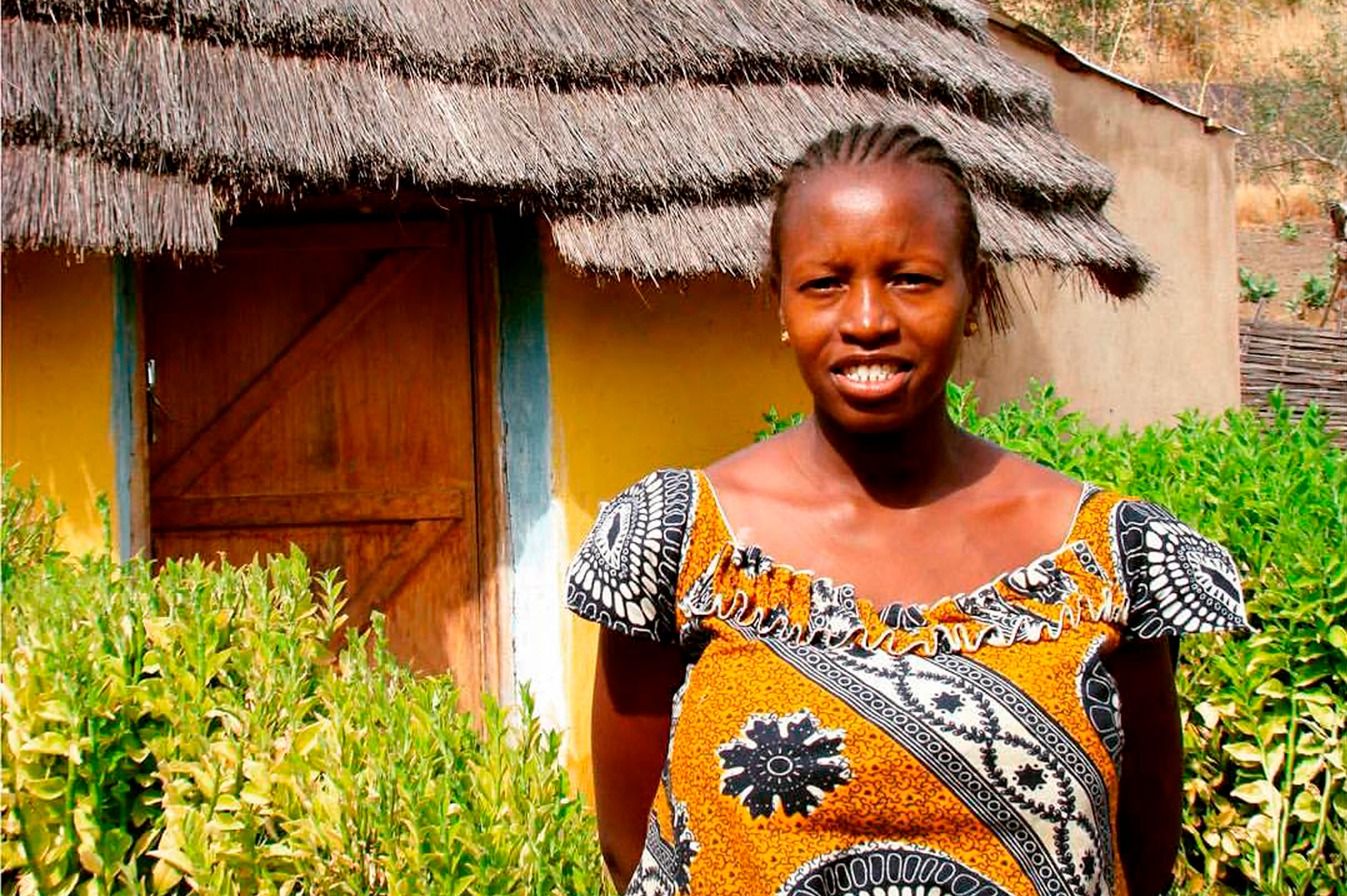
Leontine Keita
In the Southwest of Senegal, between a curve of the Gambia river and the border with Guinea in the region of Kedougou, lies the Bassari Country. This is a region with giant millenary baobabs and red soil lands. Here, in this rural region, one of the few mountainous regions of Senegal, the cultural manifestations of the Bassari or Bedik communities have remained practically intact over time.
In 1999, in Bandafassi, located in the department of Kedougou, close to the town of Ethiowar, a Bedik woman, Leontine Keita, decided to open a tourist accommodation. This establishment would allow travellers to get to know the culture and traditions of the Bedik, one of the most reduced and minority ethnic groups of West Senegal.
The daughter of a French-speaking guide and interpreter, Yoro Keita, Leontine Keita studied at a Catholic school until reaching secondary school, when, with the birth of her first son, she had no other option but to abandon her studies and begin working.
However, Leontine did not want to marry young, or be a housewife; she wanted to stay close to her home, and work. Although at the time being the manager of a camp didn’t cross her mind, she certainly aspired to being something more than a housewife. She also wanted to show the women of her community that it was possible to fend for herself.
After some time working as a tourist guide in the area of Kedougou, her father gave her some land very close to the family house, in the village of Bandafassi, whereas those closest to her considered that she should care for the family. On this land, she began her small business. The first hut, was built without electricity, with an open-air shower and a log fire for cooking, after which two new huts were built in 2000 and 2001, respectively. In 2001, the first clients stayed at Camp “le Bedik” Chez Leontine, a French couple who lived in Dakar. Soon after, a group of French hikers came to the camp. Leontine has been busy ever since.
Leontine has reinvested most of her financial profit in a number of renovations and improvements for the camp. The three initial huts have been refurbished; bathrooms have built within the huts; an independent kitchen was built, and, in the centre of the land, a large, circular open dining hall was built which was used as the dining hall and meeting point for travellers. Currently, the camp is comprised of eight huts.
The drilling of a well in the inside of the camp, funded by the Banesto Foundation, succeeded in avoiding the long daily travels in search of water for cooking and to supply the huts. Thanks to the well, the huts now have water available with less involved effort. The solar panels came first, and then the electric power, meant that fans could be installed in the rooms, together with refrigerators for keeping the drinks or food cold, and electricity for recharging phones or computers, or for connecting to the internet.
Married, and with four children, Leontine Keita juggles her work with caring for her family. Her husband is a soldier posted in Dakar, and her children are now students in the capital. Leontine travels extensively every month, from Bandafassi to Dakar and back, with her life always divided between her cherished camp which isn’t about to give up, and her family life.
Despite the circumstances, the lack of resources, and the many obstacles, Leontine succeeded in starting her own tourist camp, little by little, hut after hut, with perseverance and a strong will. In her own words, “My courage and enthusiasm are a part of my personality and this helps me move forward a little more each day”.
